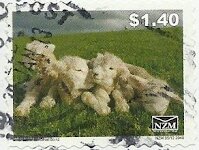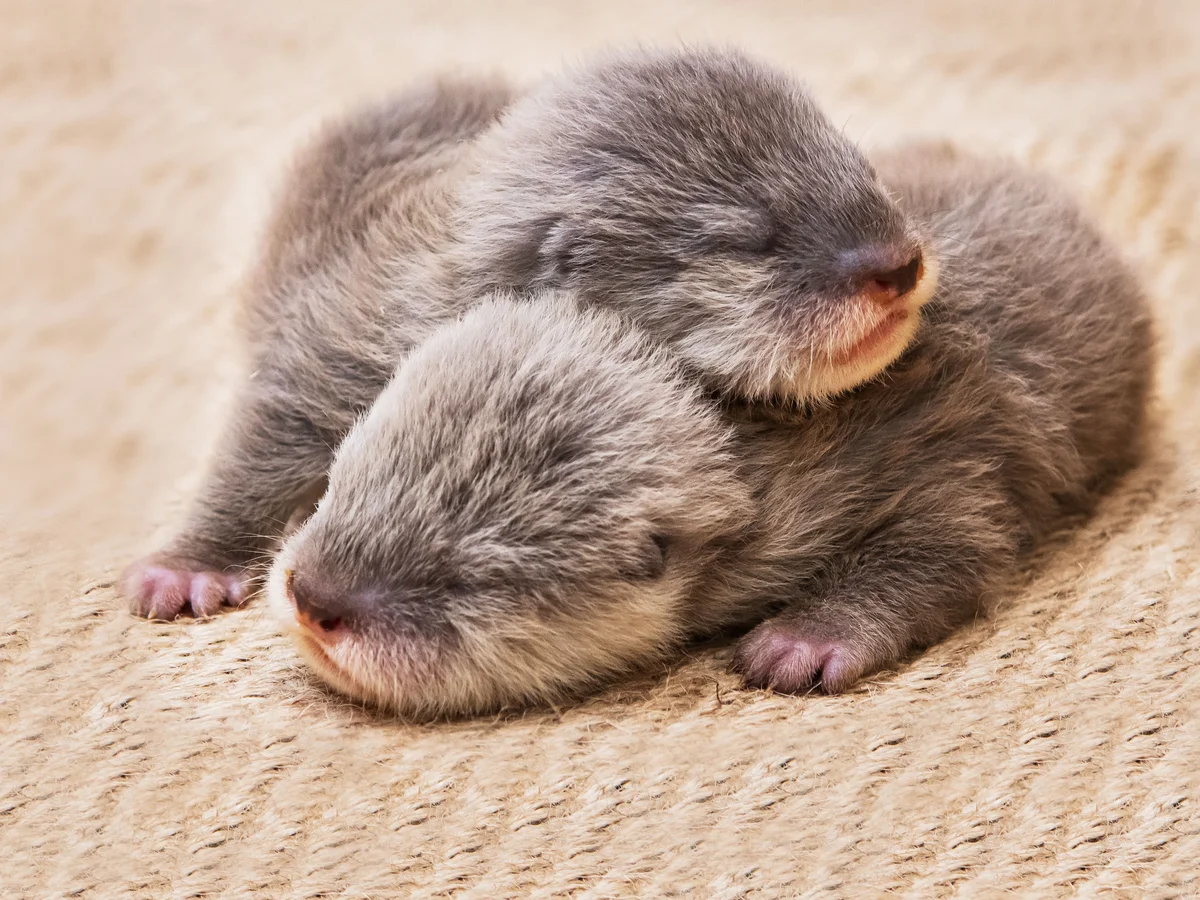Stamp: Spring Lambs (Personalized and Private Mail Stamps 2012)
Spring Lambs (Personalized and Private Mail Stamps 2012)
01 May (Personalized and Private Mail Stamps ) within release New Zealand : New Zealand Mail (NZM) goes into circulation Stamp Spring Lambs face value 1.40 New Zealand dollar
| Stamp Spring Lambs in catalogues | |
|---|---|
| Colnect codes: | Col: NZ-NZM 2012-2040 |
Stamp is square format.
Animal Series Imprint: NZM 05/12 2040Also in the issue New Zealand : New Zealand Mail (NZM):
- Stamp - Huka Falls - Large Format face value 2.80;
- Stamp - Albatross face value 1.40;
- Booklet - Animal Series Booklet face value 10*1.40;
- Stamp - Cattle face value 1.40;
- Stamp - Dolphin face value 1.40;
- Stamp - Fiordland - Large Format face value 2.80;
- Stamp - Kea face value 1.40;
- Stamp - Kiwi face value 1.40;
- Stamp - Seal face value 1.40;
- Stamp - Spring Lambs face value 1.40;
- Stamp - Tui face value 1.40;
- Stamp - Whale face value 1.40;
- Stamp - Grant Longley - Baby With Mother face value Kiwi;
- Stamp - Grant Longley - Blue Shirt face value Kiwi;
- Stamp - Grant Longley - Boy face value Kiwi;
- Stamp - Grant Longley - Child With Mother face value Kiwi;
- Stamp - Grant Longley - Family face value Kiwi;
- Stamp - Grant Longley - Happy Couple face value Kiwi;
- Stamp - Grant Longley - Pirate Hat face value Kiwi;
- Stamp - Grant Longley - Wearing a Suit face value Kiwi;
- Stamp - Grant Longley - With Child face value Kiwi;
- Stamp - Grant Longley - With Child face value Kiwi;
- Booklet - Grant Longley Series Booklet face value 10*Kiwi;
- Stamp - Night'n Day - Large Format face value Kiwi;
- Booklet - Night'n Day - Large Format face value 10*Kiwi;
- Booklet - Night'n Day - Small Format face value 10*Kiwi;
|
Data entry completed
50%
|
|
|---|---|
| Stamp Spring Lambs in digits | |
| Country: | Personalized and Private Mail Stamps |
| Date: | 2012-05-01 |
| Emission: | Private |
| Format: | Stamp |
| Face Value: | 1.40 New Zealand dollar |
Stamp Spring Lambs it reflects the thematic directions:
Animals are multicellular, eukaryotic organisms of the kingdom Animalia (also called Metazoa). All animals are motile, meaning they can move spontaneously and independently, at some point in their lives. Their body plan eventually becomes fixed as they develop, although some undergo a process of metamorphosis later on in their lives. All animals are heterotrophs: they must ingest other organisms or their products for sustenance.
A juvenile is an individual organism (especially an animal) that has not yet reached its adult form, sexual maturity or size. Juveniles can look very different from the adult form, particularly in colour, and may not fill the same niche as the adult form. In many organisms the juvenile has a different name from the adult (see List of animal names).
Sheep (pl.: sheep) or domestic sheep (Ovis aries) are a domesticated, ruminant mammal typically kept as livestock. Although the term sheep can apply to other species in the genus Ovis, in everyday usage it almost always refers to domesticated sheep. Like all ruminants, sheep are members of the order Artiodactyla, the even-toed ungulates. Numbering a little over one billion, domestic sheep are also the most numerous species of sheep. An adult female is referred to as a ewe (/juː/ yoo), an intact male as a ram, occasionally a tup, a castrated male as a wether, and a young sheep as a lamb.



